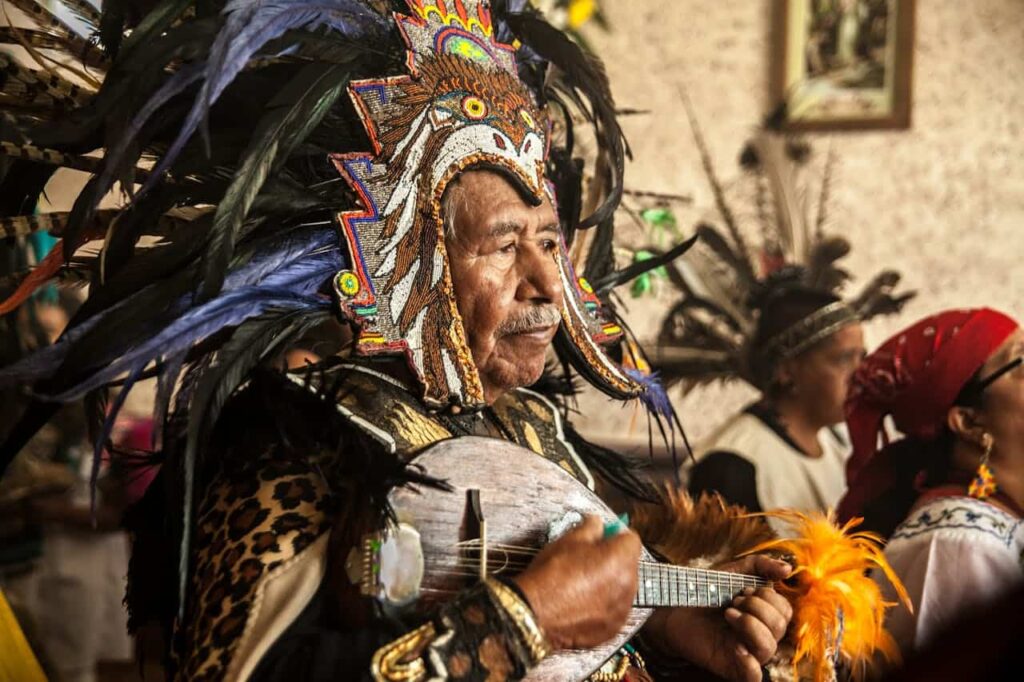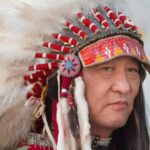Using famous quotes about Indigenous societies in your TOK essay or exhibition can do more than just make your work look better. They also help show how different knowledge systems are around the world. Yes, I am talking about more than 100 strong, real quotes related to TOK, Indigenous societies, and knowledge. So, prepare to make your TOK content much better, smarter, and unique using famous quotes on Indigenous societies.
How Quotes Reflect Knowledge and Indigenous Societies?
A quote or proverb isn’t just something you use to sound better. It shows what Indigenous societies have been through and what they believe in. Quotes frequently reflect group understanding of knowledge and tribal cultures, and these words have been improved by years, or even hundreds of years, of cultural thought.
It’s also possible for a quote to represent a whole philosophy in Indigenous societies that values oral customs. That is a handy tool for anyone studying TOK.
I always tell my students to be smart when they use quotes in their TOK presentations or essays. Don’t just add the quote; first, think about it. Pay attention to the claims it makes about your knowledge: Do you think it means that knowledge is spiritual? Community-based? Does it question the way we know things in the West?
After the quote, you can link it to a knowledge question. As an example: “How much does language affect knowledge?” You could now use a quote from an Indigenous expert who says their language is connected to their place. All of a sudden, your TOK case is based on something real and essential.
Top 100+ Famous Quotes on Indigenous Societies
In this area, there are real, useful quotes grouped by topic. Each set helps illuminate different aspects of Indigenous knowledge and societies, and they are all great for TOK use.
Wisdom and Knowledge
- “Knowledge is rooted in all things—the world is a library.” – Lakota Proverb
- “Wisdom and peace come when you start living the life the Creator intended for you.” – Geronimo
- “Seek wisdom, not knowledge. Knowledge is of the past, wisdom is of the future.” – Lumbee Proverb
- “With all things and in all things, we are relatives.” – Sioux Proverb
- “The greatest strength is gentleness.” – Iroquois Proverb
- “A single twig breaks, but the bundle of twigs is strong.” – Tecumseh
- “The weakness of the enemy makes our strength.” – Cherokee Proverb
- “The more you know, the less you need.” – Australian Aboriginal Proverb
- “It is better to have less thunder in the mouth and more lightning in the hand.” – Apache Proverb
- “Do not judge your neighbor until you walk two moons in his moccasins.” – Cheyenne Proverb
Respect for Nature
- “The land is sacred. These words are at the core of your being. The land is our mother, the rivers our blood. Take our land away, and we die.” – Mary Brave Bird, Lakota
- “We must protect the forests for our children, grandchildren, and children yet to be born. We must protect the forests for those who can’t speak for themselves such as the birds, animals, fish, and trees.” – Qwatsinas
- “The Earth does not belong to us; we belong to the Earth.” – Chief Seattle
- “We are part of the earth and it is part of us.” – Chief Seattle
- “When we show our respect for other living things, they respond with respect for us.” – Arapaho Proverb
- “The frog does not drink up the pond in which he lives.” – Sioux Proverb
- “All plants are our brothers and sisters. They talk to us and if we listen, we can hear them.” – Arapaho Proverb
- “Take only what you need and leave the land as you found it.” – Arapaho Proverb
- “We do not inherit the Earth from our ancestors; we borrow it from our children.” – Native American Proverb
- “The Earth is the mother of all people, and all people should have equal rights upon it.” – Chief Joseph
Community and Sharing
- “It is no longer good enough to cry peace; we must act peace, live peace, and live in peace.” – Shenandoah
- “One finger cannot lift a pebble.” – Hopi Proverb
- “We are all one child spinning through Mother Sky.” – Shawnee Proverb
- “Grown men can learn from very little children for the hearts of the little children are pure.” – Black Elk
- “The first peace, which is the most important, is that which comes within the souls of people when they realize their relationship, their oneness with the universe and all its powers.” – Black Elk
- “A people without a history is like the wind over buffalo grass.” – Sioux Proverb
- “Each man is good in the sight of the Great Spirit.” – Sitting Bull
- “The power of the world always works in circles.” – Black Elk
- “We will be known forever by the tracks we leave.” – Dakota Proverb
- “All who have died are equal.” – Comanche Proverb
Learning and Teaching
- “Tell me and I’ll forget. Show me, and I may not remember. Involve me, and I’ll understand.” – Tribe Unknown
- “He who learns must suffer. And even in our sleep, pain that cannot forget falls drop by drop upon the heart.” – Aeschylus
- “You must speak straight so that your words may go as sunlight into our hearts.” – Cochise
- “The soul would have no rainbow if the eyes had no tears.” – Tribe Unknown
- “Remember that your children are not your own but are lent to you by the Creator.” – Mohawk Proverb
- “Those who have one foot in the canoe and one foot in the boat are going to fall into the river.” – Tuscarora Proverb
- “It is less of a problem to be poor than to be dishonest.” – Anishinaabe Proverb
- “Beware of the man who does not talk and the dog that does not bark.” – Cheyenne Proverb
- “The bird who has eaten cannot fly with the bird that is hungry.” – Omaha Proverb
- “A good chief gives, he does not take.” – Mohawk Proverb

Spirituality and Belief
- “All things are bound together. All things connect.” – Chief Seattle
- “There is a power in nature that man has ignored. And the result has been heartache and pain.” – Anasazi Proverb
- “We are not human beings having a spiritual experience; we are spiritual beings having a human experience.” – Pierre Teilhard de Chardin
- “The Great Spirit is in all things: he is in the air we breathe.” – Big Thunder (Bedagi)
- “When you were born, you cried and the world rejoiced. Live your life so that when you die, the world cries and you rejoice.” – Cherokee Proverb
- “Man’s law changes with his understanding of man. Only the laws of the spirit remain always the same.” – Crow Proverb
- “The Great Spirit is not perfect: it has a good side and a bad side. Sometimes the bad side gives us more knowledge than the good side.” – Lakota Proverb
- “All dreams spin out from the same web.” – Hopi Proverb
- “The Great Spirit is our father, but the Earth is our mother. She nourishes us; that which we put into the ground she returns to us.” – Black Elk
- “It is the flash of a firefly in the night. It is the breath of a buffalo in the wintertime.” – Crowfoot
Leadership and Responsibility
- “A leader is best when people barely know he exists.” – Lao Tzu
- “The greatest strength is gentleness.” – Iroquois Proverb
- “A good soldier is a poor scout.” – Cheyenne Proverb
- “A chief is a servant, not a ruler.” – Haudenosaunee Teaching
- “Leadership is not about being in charge. It is about taking care of those in your charge.” – Wilma Mankiller
- “You can’t wake a person who is pretending to be asleep.” – Navajo Proverb
- “If you see no reason for giving thanks, the fault lies in yourself.” – Minquass Proverb
- “If we must die, we die defending our rights.” – Sitting Bull
- “Even the smallest person can change the course of the future.” – Inuit Saying
- “Each person is their own leader, responsible for their own path.” – Haudenosaunee Philosophy
Oral Tradition and Storytelling
- “Our stories are not just stories. They are our guides, our maps, and our histories.” – Thomas King
- “Words are sacred. They travel far and leave echoes.” – Navajo Saying
- “The storyteller makes the world. He who tells, creates.” – Hopi Proverb
- “To know where you’re going, you must know where you’ve been.” – Anishinaabe Teaching
- “The truth about stories is that that’s all we are.” – Thomas King
- “Stories are not told just to entertain. They are told to teach.” – Inuit Oral Tradition
- “When an elder dies, a library burns.” – African Proverb
- “We are made of stories, not atoms.” – Cree Teaching
- “What you hear and what you say is who you are.” – Pueblo Proverb
- “The history of our people is not written in books, it’s spoken in the wind and remembered in the heart.” – Dene Elder
Time, Cycles, and Seasons
- “Time is not something we keep track of with clocks, but something we feel in our bones.” – Inuit Elder
- “Everything comes in its time, as the sun follows the moon.” – Dene Proverb
- “Life moves in cycles, not straight lines.” – Blackfoot Philosophy
- “There is a time to be silent and a time to speak; nature teaches this.” – Hopi Wisdom
- “The seasons are our teachers. We learn patience from winter, renewal from spring, growth from summer, and release from fall.” – Anishinaabe Teaching
- “Everything in life is a circle.” – Black Elk
- “Day and night, winter and summer—everything has its purpose.” – Cree Proverb
- “The moon is our grandmother, she teaches us about timing, waiting, and watching.” – Ojibwe Teaching
- “We count time by the heartbeat of the Earth.” – Lakota Saying
- “Forests are trees holding hands underground.” – Jeffrey Campbel
Knowledge and Identity
- “To know who you are, you must know where you come from.” – Mohawk Proverb
- “Our language holds the knowledge of who we are.” – Khelsilem
- “Without culture, we are like trees without roots.” – Taiaiake Alfred
- “Knowledge is not just in the mind. It lives in the land, in the body, in relationships.” – Leanne Betasamosake Simpson
- “An identity would seem to be arrived at by the way in which the person faces and uses his experience.” – James Baldwin
- “You can’t learn about us from books alone. You must sit with us, hear us, walk with us.” – Haida Elder
- “Our names carry the weight of our ancestors.” – Tlingit Saying
- “Our knowledge isn’t lost. It waits for us to be ready to hear it again.” – Māori Saying
- “We carry generations of wisdom in our bloodlines.” – Cherokee Belief
- “What we know matters but who we are matters more.” – Brené Brown

Need help with your IB TOK essay?
From research and analysis to structuring and editing, our skilled mentors will be by your side, helping you write an exceptional TOK essay that meets the word count and stringent IB criteria.
Language and Cultural Identity
- “Our language is our life. When we speak it, we remember who we are.” – Tłı̨chǫ Elder
- “Language is not just communication; it’s ceremony, memory, and knowledge.” – Leanne Simpson
- “When we lose a language, we lose a way of understanding the world.” – Winona LaDuke
- “Each word we speak carries teachings.” – Innu Elder
- “Language is how we think, how we connect, how we pass on wisdom.” – Ktunaxa Teaching
- “Our ways of knowing are holistic. You learn with your heart, your mind, your body, and your spirit.” – Cree Principle
- “What we know, we sing, we dance, we speak, we make. Knowledge is lived.” – Yolngu (Australian Aboriginal) Perspective
- “The language you think in shapes how you see everything.” – Navajo Philosopher
- “Our knowledge is not written—it is spoken, practiced, and remembered.” – Inuit Saying
- “Language is the heart of our culture, the root of our understanding.” – Haudenosaunee Teaching
Final Thoughts
In my experience, students who relate their work to famous quotes about Indigenous societies have a more sophisticated knowledge of TOK concepts.
So don’t simply scatter quotes throughout your work. Use them to back up your analysis, question your beliefs, and demonstrate that you’ve really engaged with knowledge and Indigenous societies. I believe it adds depth, uniqueness, and real-world perspective to your IB Theory of Knowledge assignment. Examiners will undoubtedly notice this.
So, good luck, and feel free to contact our TOK and EE writers if you want assistance with any IB tasks.
Luke MacQuoid
Luke MacQuoid has extensive experience teaching English as a foreign language in Japan, having worked with students of all ages for over 12 years. Currently, he is teaching at the tertiary level. Luke holds a BA from the University of Sussex and an MA in TESOL from Lancaster University, both located in England. As well to his work as an IB Examiner and Master Tutor, Luke also enjoys sharing his experiences and insights with others through writing articles for various websites, including extendedessaywriters.com blog
- Transition Words For An Argumentative Essayby Narmeen
- Figurative Language Examples in Literature – IB English Extended Essayby Narmeen
- Math Extended Essay Topicsby Luke MacQuoid
- 100+ Famous Quotes on Languageby Luke MacQuoid
- 100+ Famous Quotes on Indigenous Societiesby Luke MacQuoid
- 100+ Famous Quotes on Religionby Luke MacQuoid



